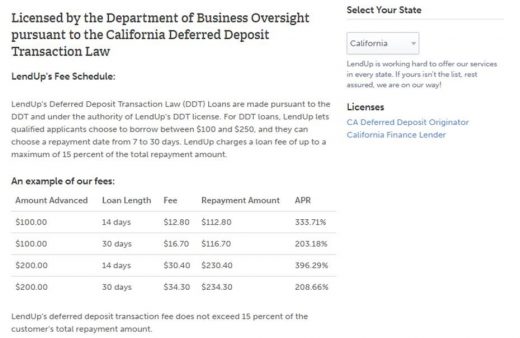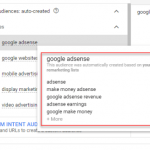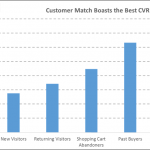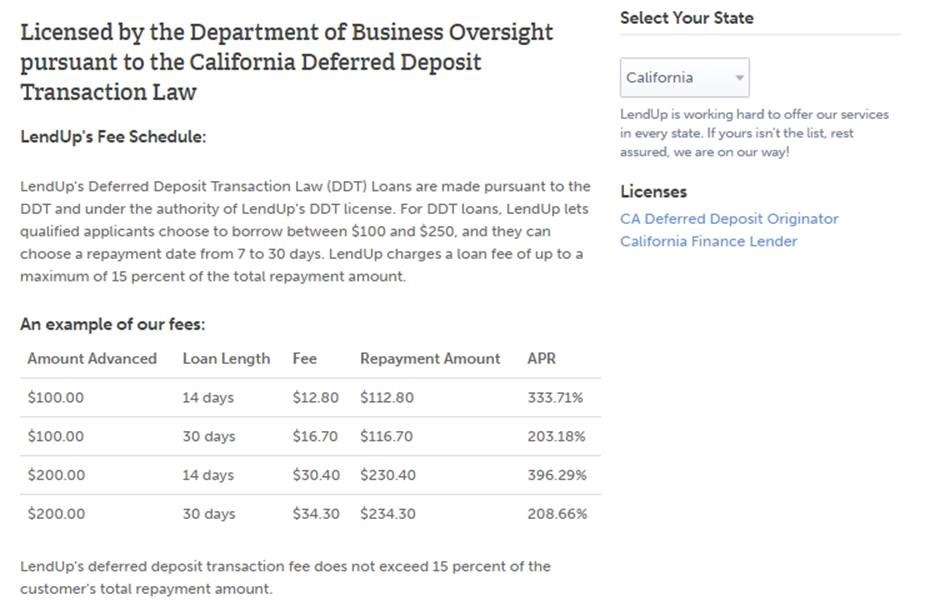Google’s Own Payday Lending Company Not Up To Snuff
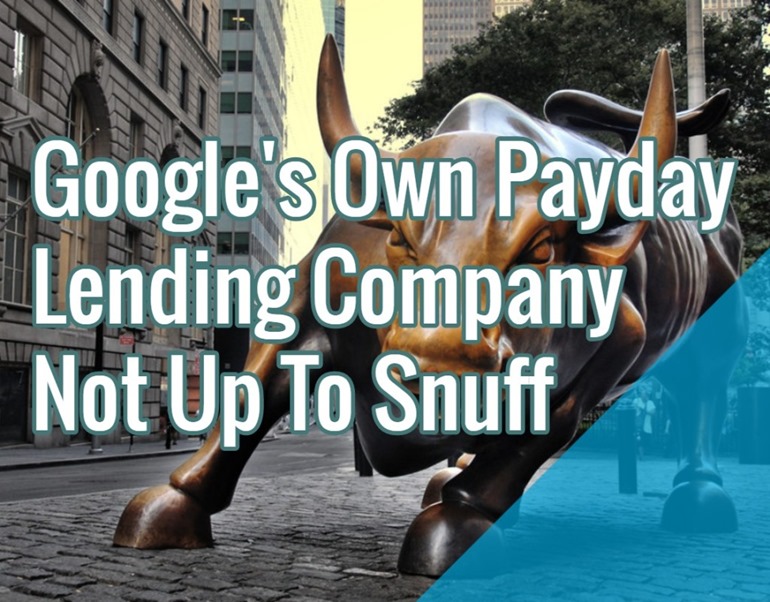
Google has announced an update to their AdWords policy on lending products.
As of July 13 (2016) Google “will no longer allow ads for loans where repayment is due within 60 days of the date of issue” nor will they show ads for “loans with an APR of 36% or higher.”
They cite user protection as the reason for this update, specifically that “research has shown that these loans can result in unaffordable payment and high default rates for users.”
This is a noble cause, but is this really the reason?
Google Is A Payday Lender Investor
If I told you that Google is invested in a Payday lender, would you believe me? Well, according to this, and many other articles, Google Ventures is an investor in payday lender LendUp.
Let’s start with the connection between Google Ventures and LendUp.
At first glance, when you look up the listed investors of LendUp on CrunchBase.com, you won’t see Google Ventures listed. Until you learn that the Venture Capital Investment Arm of Google is now known simply as GV: 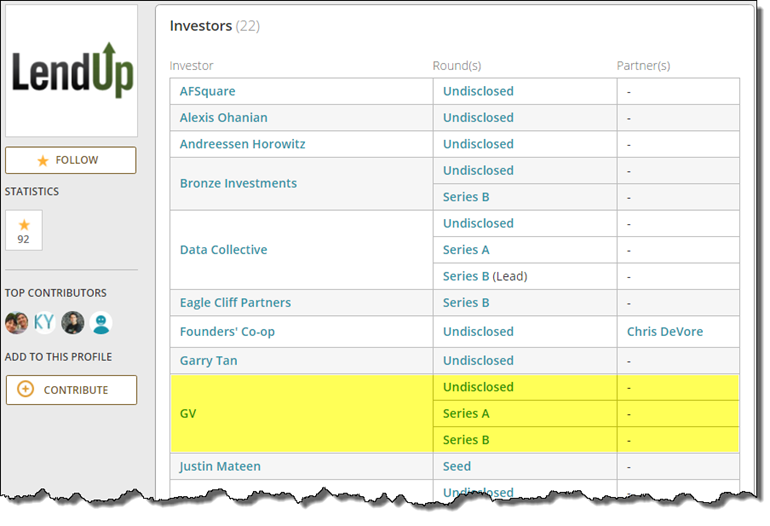
Here is GV’s own entry in Crunchbase. Note the furthest possible departure from commonly-known logo and color scheme, retaining only the iconic G.

How LendUp Compares To Google’s Payday Loan Ideals
Now that we have established that Google Ventures is, in fact, invested in a Payday Lender, let’s look at how they are helping to “reshape a pretty terrible industry”, as this article in The Wall Street Journal put it.
As you recall, Google’s Policy Update is centered around clear disclosure on the landing page pertaining to minimum and maximum repayment periods, maximum Annual Percentage Rate (APR) and offer a representative example of the total cost of the loan (including all fees). More specifically:
- Rule 1: All personal loans with repayment in full within 60 days will be prohibited (globally, including the US)
- Rule 2: All personal loans with an APR over 36% will be prohibited (US only)
With this in mind, let’s review LendUp‘s home page for the required disclosures.
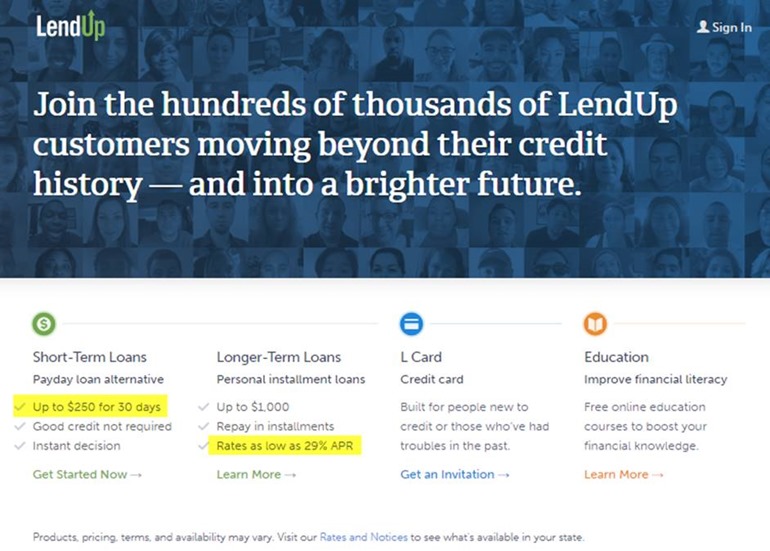
- Result 1: The first thing we see under the banner is their short term loan offer quoting a 30-day repayment term, a clear and direct violation of Google’s greater than 60-day repayment requirement.
- Result 2: What about their longer-term loan offer? Here we see they quote longer-term loan “rates as low as 29% APR.” While this technically meets Google’s sub 36% APR requirement, I challenge you to find a representative example of this actual rate anywhere on the Longer Term Loans or Rates and Notices pages.

Conclusion
So let’s recap this one more time.
(1) Google has issued a policy update related to financial services which will take effect July 13th of this year and is aimed squarely at the same “pretty terrible industry” of short-term personal loans that (2) they, themselves, are invested in through a Payday lender who (3) is in clear violation of the coming policy update.
Please don’t take this as me suggesting that LendUp, or any other payday loan entity Google may be either directly or indirectly be invested in, won’t be as affected by the July 13th policy update as you or your clients, but it will certainly be interesting to see who is left standing.
As for why Google would be invested in the same industry they have been actively imposing tighter and tighter restrictions on, I see 3 possible reasons:
- Because they own competitive companies
- To actually make a difference in the world, and clean up what they see as a problem industry
- Both of the above
I’ll let you decide which is most likely.
Hand-Picked Related Articles:
- The Google Ventures Billion Dollar SEO Empire – Extensive look by Jacob King at how well Google backed companies are doing in search. Includes not only GV backed companies but also Google Capital, investor in companies such as Lending Club and Credit Karma
- Google Rethinking Payday Loans & Doorway Pages? – Hard hitting article by Aaron Wall exposing Google’s stance on doorway pages and LendUp’s excessive, successful, and ongoing use of them
- How Google Skewed Search Results – The Wall Street Journal reporters Rolf Winkler and “still-not-on-twitter” Brody Mullins report on the FTC finding evidence of Google manipulating search results in its own favor. Google “adopted a strategy of demoting or refusing to display, links to certain vertical websites in highly commercial categories.”
* Adapted lead image: ![]() Some rights reserved by Arch_Sam
Some rights reserved by Arch_Sam
Google’s Own Payday Lending Company Not Up To Snuff
The post Google’s Own Payday Lending Company Not Up To Snuff appeared first on Search Engine People Blog.
(35)

